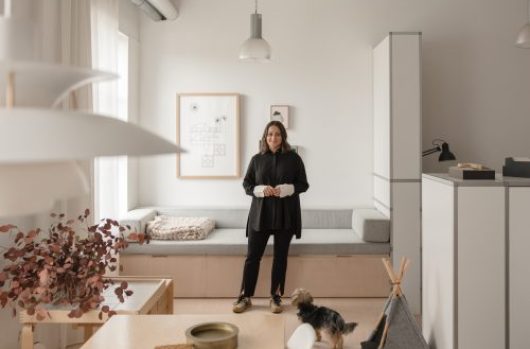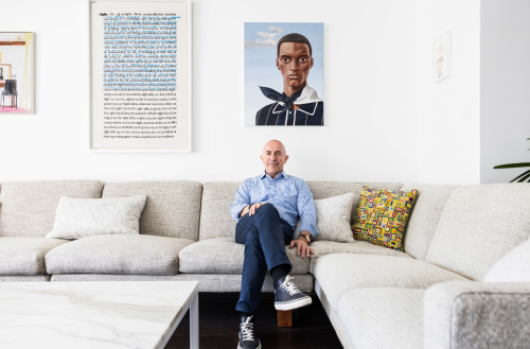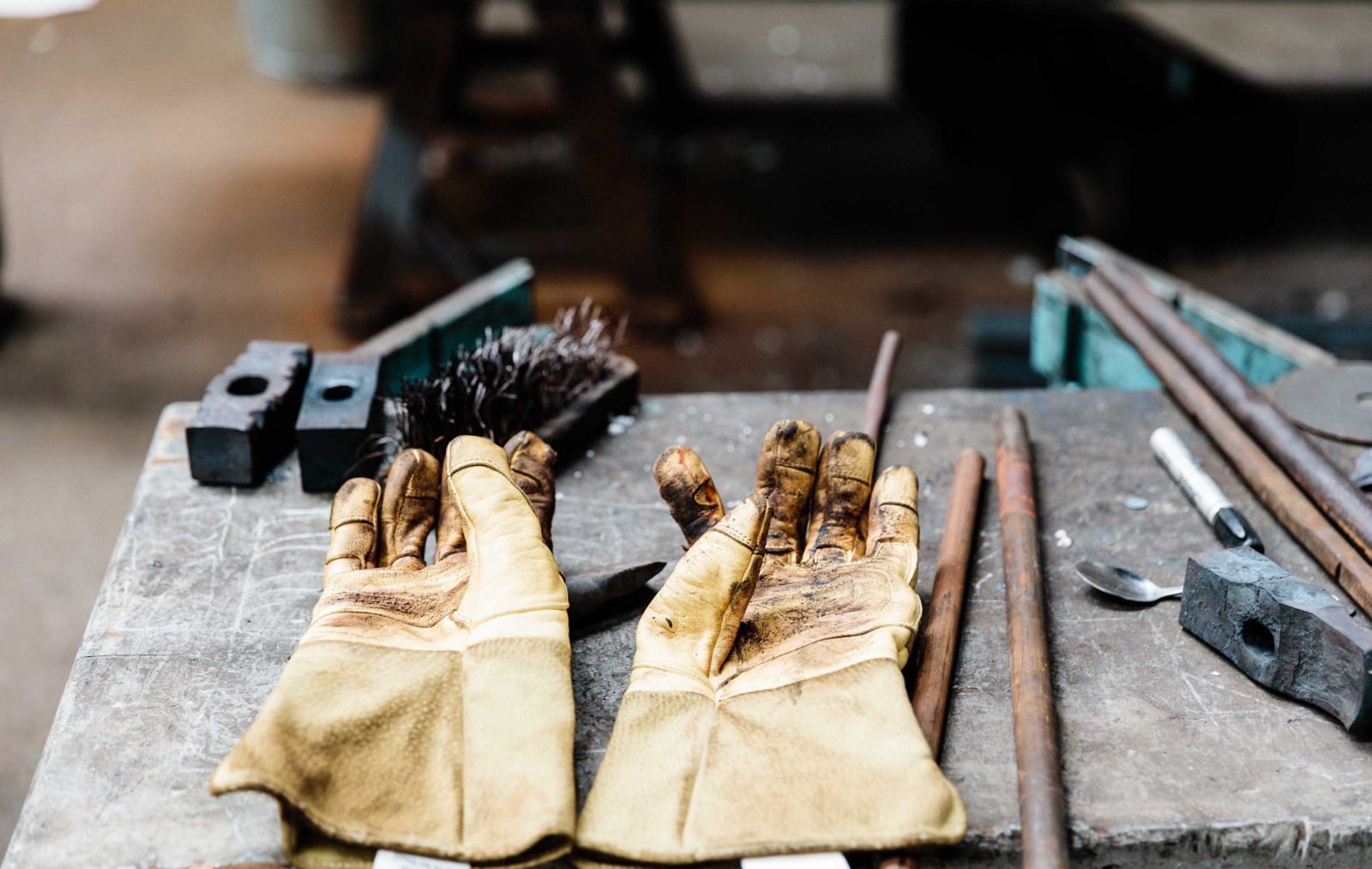
The maker’s mark
“I don’t see what I do as a just a trade, I see it as building a community” says shoemaker Andrew McDonald as he works a bit of leather, his hands smoothing the material that almost melts in its obediency. McDonald has been a cobbler for 28 years and his store/studio has been in the iconic Strand Arcade for five of those. Today, he is making a pair of shoes for a long-standing client – someone who has quite literally walked in his shoes for a number of years. However, metaphorically speaking, it’s not a well-trodden path; and Andrew tells me cobblers are a rare breed in this society of fast fashion consumption. “Big business needs to realise that people come before profits. My business is all about relationships. Not just their relationships with me as a maker but also their relationship with the goods they buy from me. When you buy a pair of handmade shoes, the life of the object begins. When you buy something mass made, it’s the beginning of the end.”
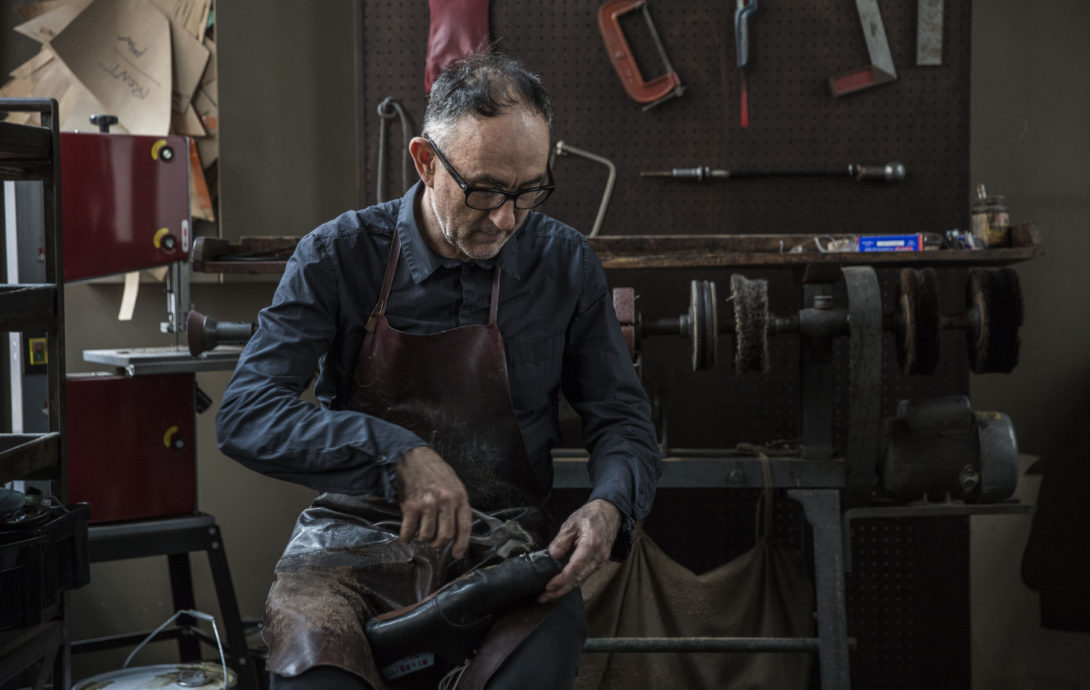
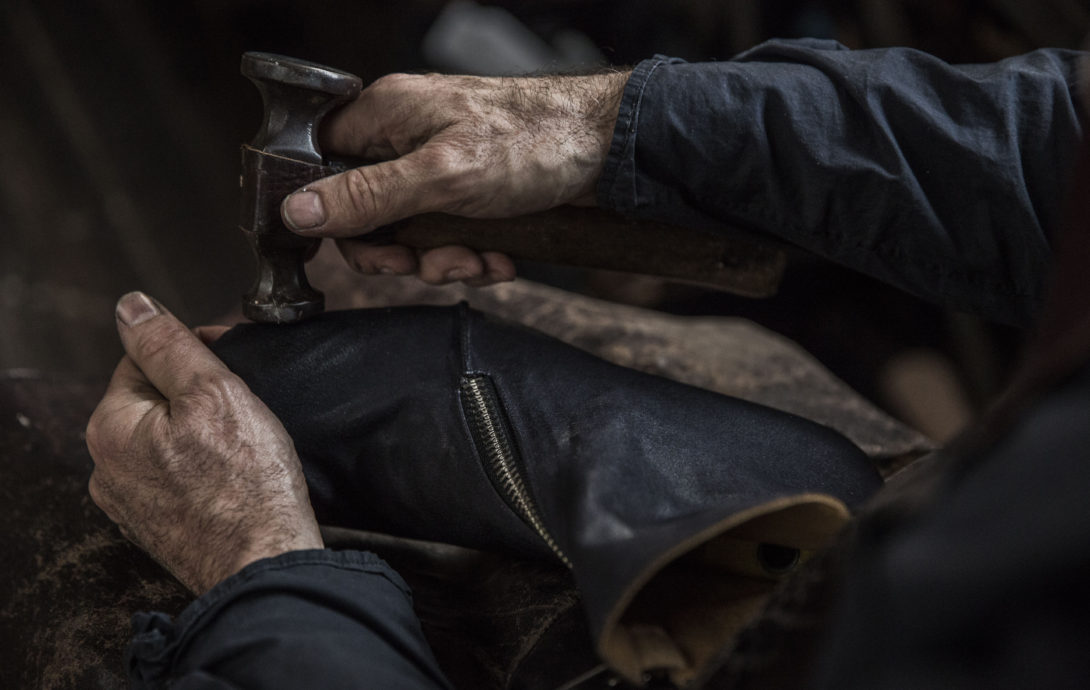
It’s a sentiment that Matt Mewburn, a blacksmith, shares: “We just don’t have a connection to our ‘things’ anymore. I grew up on a farm where if something didn’t work, you’d tinker and fix it, now things are discarded as quickly as they are purchased. I think in a way we are robbed of the cause and effect of our actions. What’s cheap, in the long run, costs us more than we realise.” Mewburn, 30, runs Eveleigh Works in the 200 year old locomotive workshop in Eveleigh. From a childhood spent “pulling things apart” on his family’s rural property, Matt tells me his attraction to his craft stemmed from a pure desire to ‘make’ in its purest, plastic form. His creations include everything from knives, tools, fences – pretty much anything and everything forged from metal. “In the city we seem to lack an understanding of mechanics, of construction, even of the simplest components of modern life.”

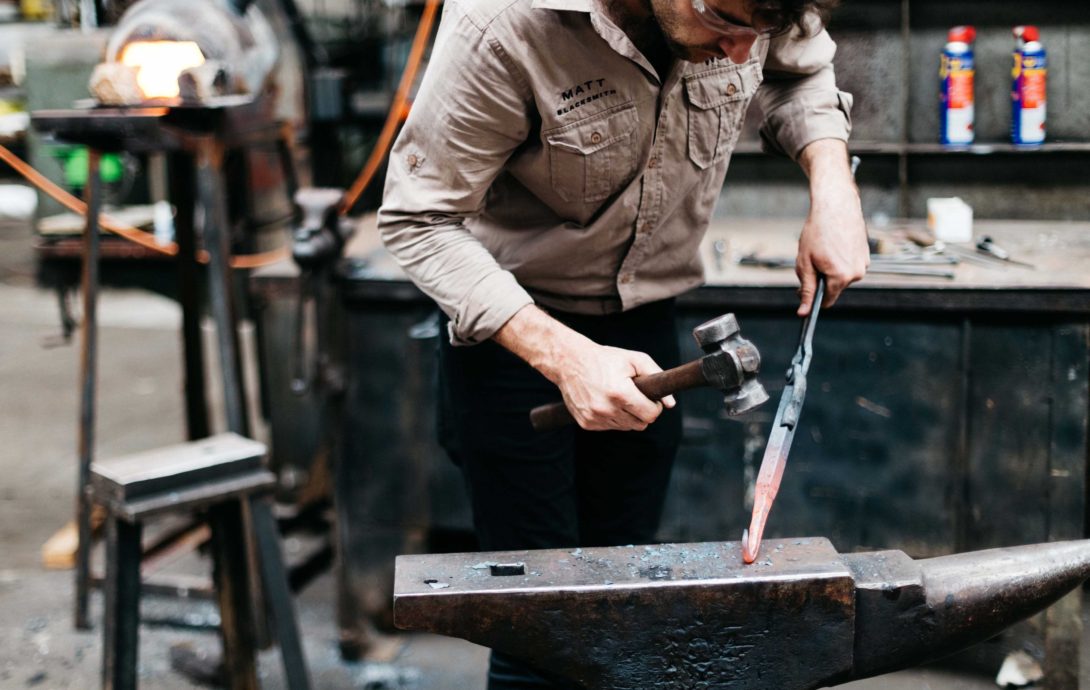
The thing is though, the times, they are a changin’. Both Andrew and Matt run workshops where they teach their crafts to eager students keen to learn skills from the makers themselves. They both agree that a primary incentive for their students is to rediscover meaning in everyday objects, to consume in a more meaningful way. It seems the skills of the past are helping inject substance that is perhaps missing from the modern 9-5. “People are becoming more and more curious, perhaps as they realise this pronounced disconnection between their objects and themselves,” Matt says of his students. Some creative, some not, these interested minds are more inspired by tactility that is missing from their everyday lives. “I think people are suffering from what I call the ‘brain cloud’ – we are exhausted by the micro-nature of our modern professions. I am just two-degrees separated by the blokes who built the railways over 100 years ago….railways that help establish Australian industry. I still use their tools and love the thought that in 100 years from now, folks will be using ones I’ve made, with my own maker’s mark. There is a certain honor in the simple, rudimentary nature of my trade.” Andrew McDonald agrees: “There is no division of labour here, we make things from start to finish using humble materials from a limited number of sources. You can track the provenance of these goods.”
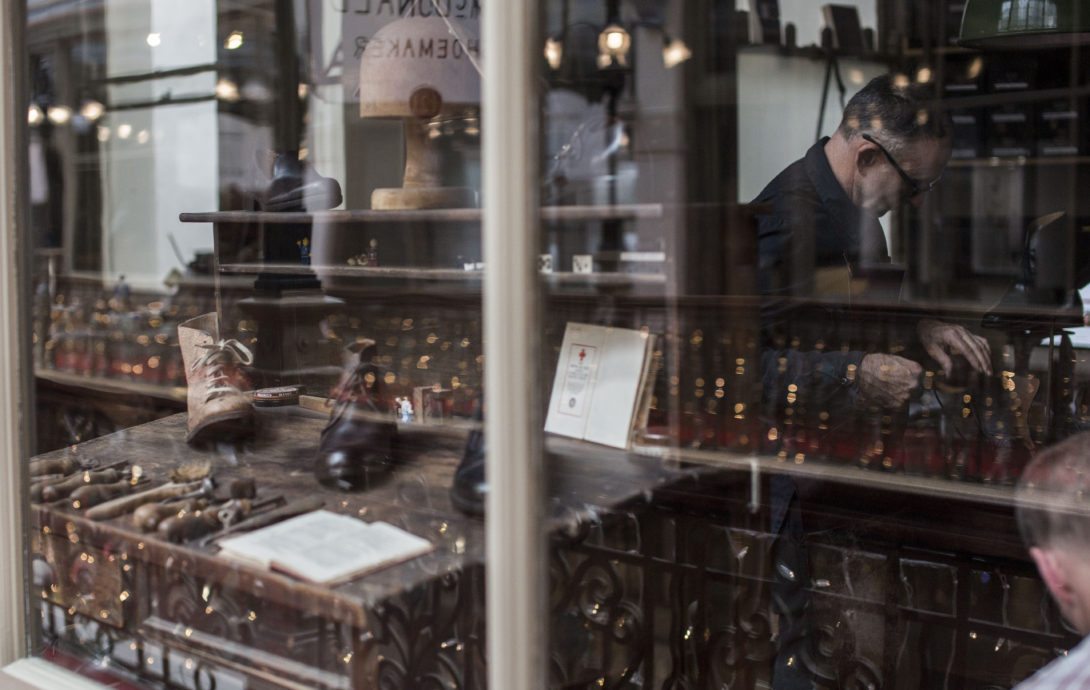
It’s something the food industry has witnessed for some time – as people become more and more interested in what they ingest. ‘Slow food’, ‘clean eating’ and ‘paddock to plate’ sound like hipster buzz phrases, however for many, they mean a reduced environmental impact and a greater connection to their health. Not to mention, a more meaningful relationship with food. Cornersmith in Marrickville has been at the forefront this shift, and has seen an upsurge in their class attendance (in everything from pickling to cheesemaking) over the past few years. “There is a growing interest in making things from scratch and we try to encourage people to move away from the supermarkets and start cooking with the seasons. People like to feel that connection with where their food is produced.” Says Michaela from the Cornersmith Picklery. “We have found it not only a great way to get to know our community but to introduce an awareness of seasonal produce and reduce food waste.”
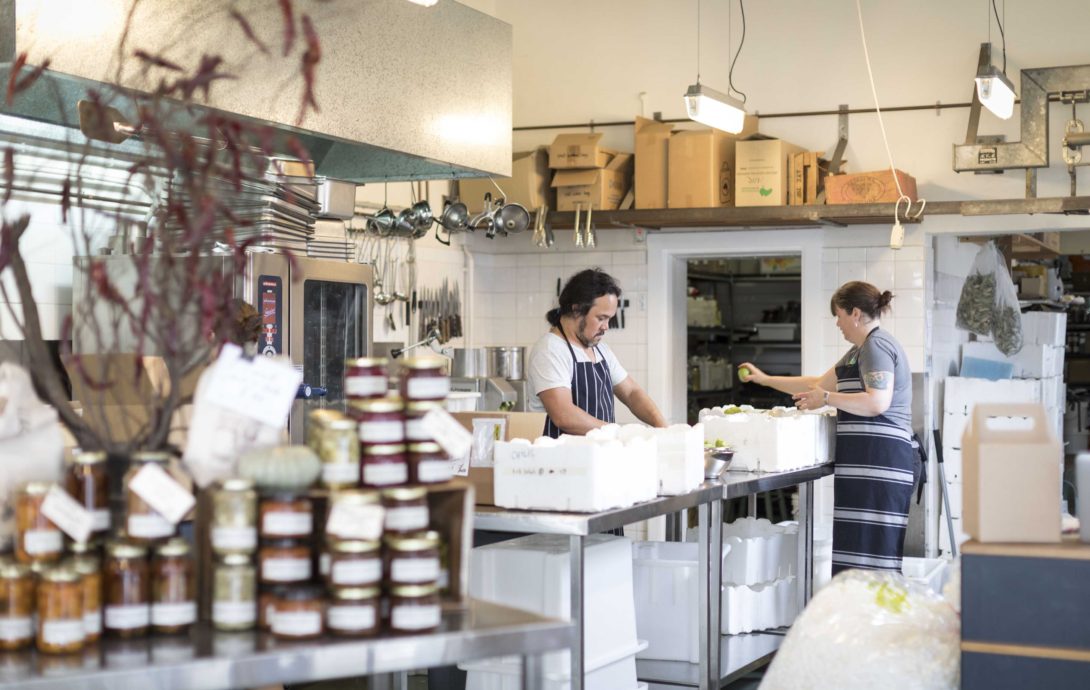
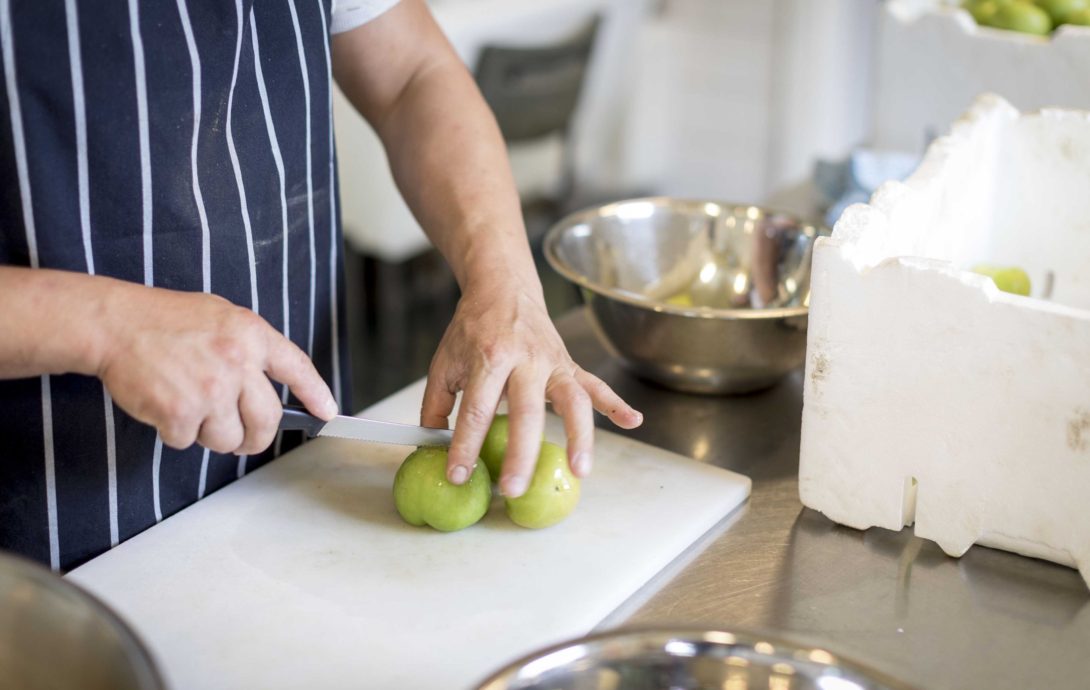
Similar to fashioning a pair of shoes and forging metal objects, the Cornersmith classes attract students from all walks of life “becoming more informed as to the origins of their goods”. Says Michaela. With a focus on “traditional techniques for modern living” it’s safe to say that there is a burgeoning renaissance of the skills of yesteryear – with many curious hands paving the way for a more in touch, and connected future.
